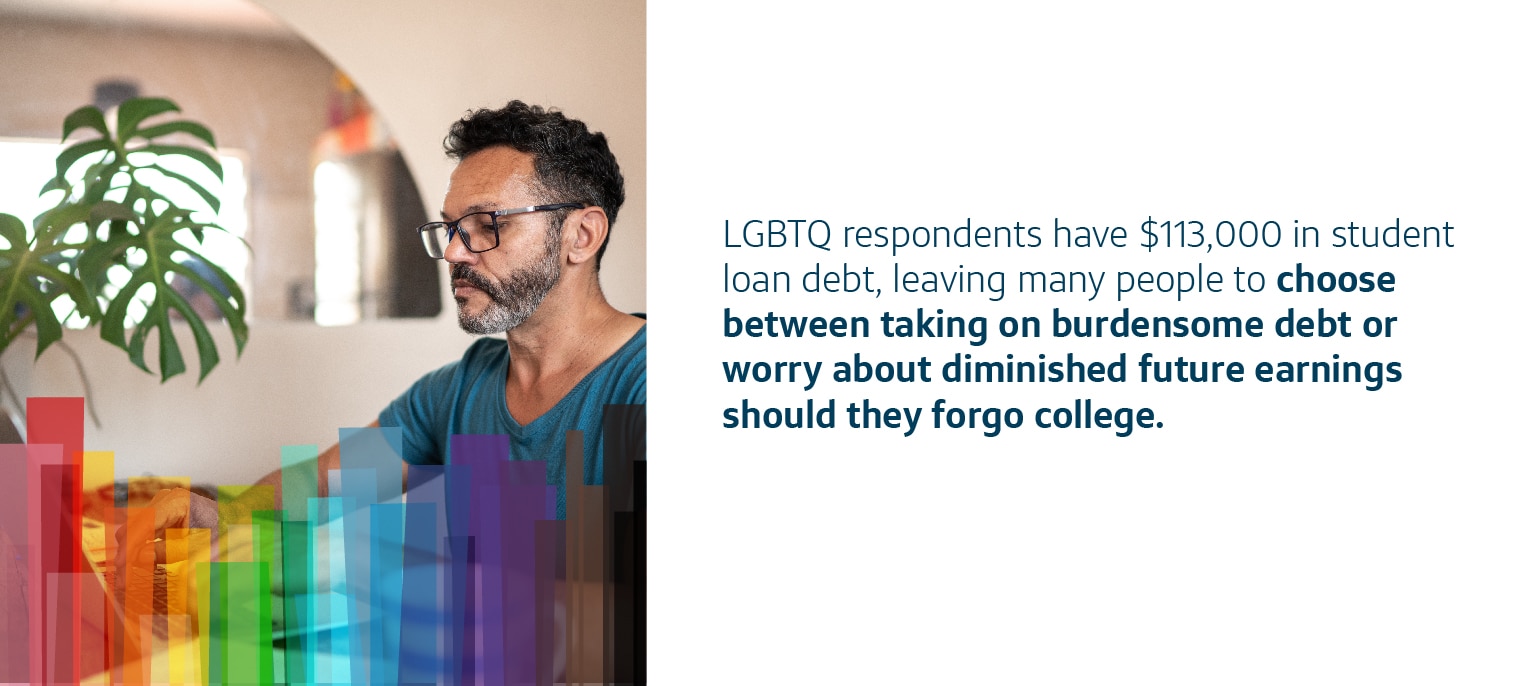The Debt Free Guys: Financial Obstacles Facing LGBTQ+ People
David and John Auten-Schneider, hosts of the Queer Money podcast, offer their perspectives on how to get ahead financially
Let’s understand more about LGBTQ+ money
We and other personal finance experts have long talked about the financial challenges of the LGBTQ+ community. That includes access to equal housing, services protections and wage inequality because of one’s sexual orientation or gender identity.
While those protections would be included in the Equality Act, legislation remains pending in Congress.
To be fair, the LGBTQ+ community has made significant progress over the last several years. The two most notable being the Supreme Court’s 2015 ruling to ensure marriage equality and 2020 decision to ban employment discrimination based on sexual orientation or gender identity. That progress has continued with the current administration, as President Joe Biden recently signed executive orders protecting LGBTQ+ people from housing and services discrimination.
The LGBTQ+ community faces a unique set of financial challenges that are preventing equal opportunity for all.
Let’s break down some of the obstacles confronting members of the LGBTQ+ community.
LGBTQ people are being left out of generational wealth
A common and unique LGBTQ+ financial challenge is that many in our community are being left out of generational wealth.
Nearly half of LGBT adults say that at some point in their lives they were rejected by a family member or close friend because of their sexual orientation or gender identity, according to a 2013 study by the Pew Research Center. This often includes financial support before, during and after college.
According to a 2018 survey conducted by Student Loan Hero, LGBTQ respondents have $113,000 in student loan debt — roughly $16,000 more than the general population — leaving many to choose between taking on burdensome debt to achieve a college degree or worry about diminished future earnings should they forgo college.
That lack of financial support from family members is also a driving factor behind why 40% of homeless youth identify as LGBTQ, according to True Colors United.

How to overcome that challenge
While there’s no one single solution to LGBTQ+ generational wealth exclusion, this multi-pronged approach is aimed to help people in that community avoid taking on burdensome debt.
1. Consider alternative post-secondary education
It could be argued that college is cost-prohibitive, but education beyond high school is critical. There are currently a dearth of experts in both trade and technical fields, neither of which require a four-year college degree. Both can be achieved through affordable trade and technical schools or even paid apprenticeships.
From plumbing to glass blowing to web development and game design, there are many options for further education and high-earning careers that don’t require the expense of a traditional college education.

2. Consider creative financing for college
There’s a lot to be said for going straight to college from high school. Many people may have never gotten their college degree otherwise. But the cost of paying for college has increased steadily in recent years. Therefore, it makes more sense than ever to first work a few years to gain experience and save money for college. In fact, you may find an employer willing to pay for some or all your college education.
For LGBTQ+ people, there are college scholarships and grants. A good place to start this search is with the Human Rights Campaign’s (HRC) LGBTQ Student Scholarship Database.
All isn’t lost if you’re part-way through or you’ve already graduated college. There’s also the Employer Participation in Repayment Act (EPRA) — a bill passed last year that is scheduled to last through 2026 and enables employers to contribute $5,250 in annual tuition assistance to be sent towards servicing the cost of the education employees have already achieved.
3. Let’s be hopeful (and intentional) about our future
As Dr. Martin Luther King, Jr. famously said, “the arch of the moral universe is long and bends toward justice”.
There’s no doubt it’s bending toward justice in the LGBT community. The solution is that we must recognize that.
This means that while we live our best lives today, we must consider our long-term financial security and the lives we want to live when we’re older. To be clear, living our best lives today and having financial well-being to live our best lives in the future aren’t mutually exclusive.

It’s by talking with our friends and family about money, working with a Money Coach at a Capital One Café or other financial planner to recognize what matters most to us today and what we want in the future.
It’s for these challenges and opportunities that we’re strong advocates for LGBTQ financial independence and why we’re proud to partner with Capital One. Though people have nuanced backgrounds, Capital One believes, as we do, that finances should work for everyone. That’s why Capital One supports LGBTQ+ communities facing unique economic hardships through both products and programs supporting our needs.


